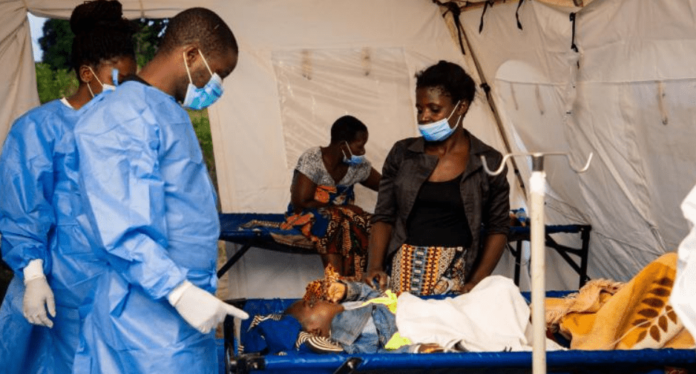Minister of Health Dr Joe Phaahla has called for extra vigilance after laboratory tests confirmed two cases of cholera.
The patients are Malawian sisters who had travelled from Johannesburg to their native country for a burial last month. The siblings started developing the symptoms upon their return to South Africa on January 30.
Cholera is an acute enteric infection caused by the bacteria vibrio cholerae, and the outbreaks usually occur in settings with inadequate sanitation and insufficient access to safe drinking water.
Symptoms range from mild to severe and watery diarrhoea and dehydration. The incubation period (a period from when the person ingests cholera-contaminated water/food to when they first become ill) ranges from a few hours to five days, usually two to three days. Most persons infected with cholera will experience mild illness or not feel ill.
People can also get infected directly through drinking contaminated water, or indirectly through eating contaminated food.
According to the Health Department, one patient presented to a local clinic and was admitted to the hospital.
During the investigation and follow-up of close contacts, the sister reported that she also developed diarrhoea while travelling back from Malawi by bus. Still, it resolved within a day and she did not seek any health care.
“A close contact [household family member] of one of the cases/patients was admitted to the hospital on February 4 with diarrhoea and dehydration and is considered a possible case. Laboratory test results are pending and follow-up of close contacts is ongoing,” said Phaahla.
The department is working closely with officials in Gauteng, the affected province, the National Institute for Communicable Diseases and World Health Organisation to closely monitor the situation.
“All people experiencing symptoms such as diarrhoea and dehydration, with or without a travel history to cholera-outbreak countries are urged to report at their nearest health facilities for health screening and early detection.”
Cholera is not endemic in South Africa, said the department. The last outbreak was in 2008/2009 with about 12 000 cases.
Follow @SundayWorldZA on Twitter and @sundayworldza on Instagram, or like our Facebook Page, Sunday World, by clicking here for the latest breaking news in South Africa. To Subscribe to Sunday World, click here.



